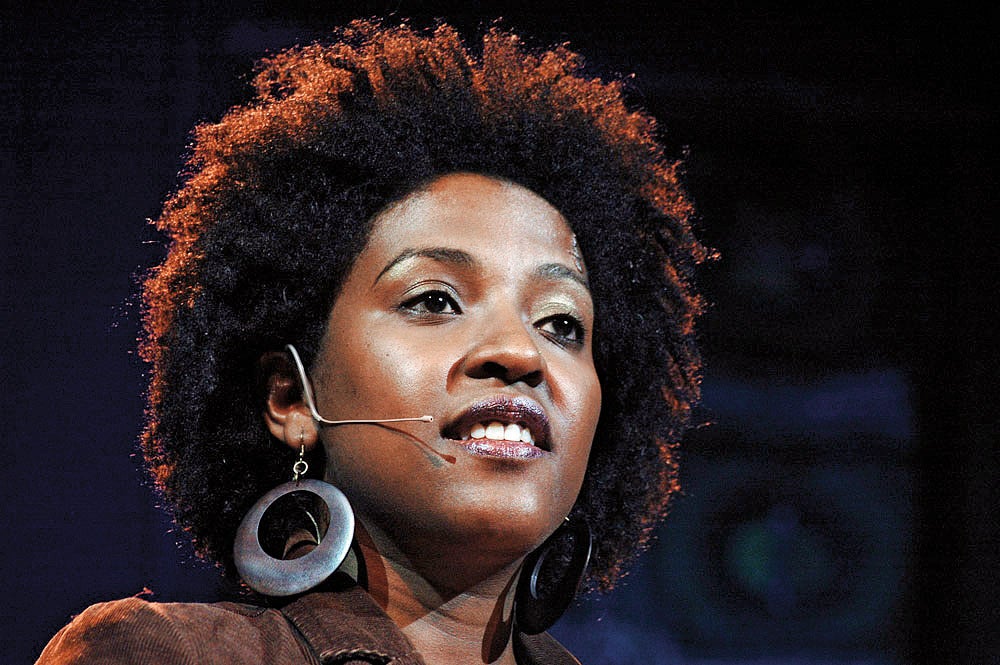Ory Okolloh ’05: Testimony to the power of collaboration
Within hours of the catastrophic earthquake that hit Port-au-Prince, Haiti, on Jan. 12, when so many felt helpless to intervene, a website powered by volunteers helped to inform humanitarian aid groups and even the U.S. State Department about the developing disaster.
The site harnessed the strength of the Internet and mobile phones to organize content generated by multiple users. It was built on an innovative platform called Ushahidi (Swahili for “testimony”) that “crowd-sources” crisis information.
Ory Okolloh ’05, its co-founder, currently serves as the executive director of the organization that’s focused on further developing the tool. Okolloh’s role grew out of her interest in technology, citizen journalism and international human rights work. She fostered those interests at HLS through the Berkman Center for Internet & Society.
A native of Kenya, Okolloh, who did her undergraduate studies at the University of Pittsburgh, decided to go to law school because, “From when I was young, I always associated law with individuals who are pursuing justice,” she says.
Focused on international public interest work, she spent one of her summers at the World Bank in Washington, D.C., investigating corruption in World Bank projects as a Chayes Fellow. She interned in Nairobi at the Kenya National Commission on Human Rights during two of her winter terms.
Trying to get assistance to a disaster-stricken city? Monitoring election Fraud? Okolloh has a website for you.
After law school, Okolloh returned to her country (turning down an offer from a D.C. firm) and soon found herself in the midst of a constitutional referendum. Responding to the lack of information about the process and Kenyan politicians, she co-founded a website called Mzalendo (Swahili for “patriot”) that tracked Kenyan parliamentarians online, because “We didn’t really know what they were up to,” she explains. “We really wanted to encourage Kenyans to say, ‘ Look, if you don’t start asking these guys questions about what they are doing, they aren’t going to give that information up themselves.’”
Okolloh later moved to Johannesburg to work as in-house counsel for an NGO that supported start-up entrepreneurs. She returned to Kenya in 2007 to blog about the presidential election, which was widely believed by the international media to be rigged.
“There was a lot of censorship in the government and the local media, and they weren’t really covering the story well,” says Okolloh. “When I’d turn on the TV and the radio, there would be no news coming through. I opened up my blog and said, ‘ Send me your stories. I’ll publish them and make sure that someone sees them.’”
When incumbent candidate Mwai Kibaki was declared the winner of the election despite his opponent’s announcement to the contrary, violence broke out around the country. Okolloh, who by then had a 10-month-old baby, made the difficult decision to return to South Africa.
On her way back to Johannesburg, she thought, What if there was a way for people to send the information directly to a website and you could have access— a record, or map, of what happened?
The idea for Ushahidi was born. Initially it was a volunteer project, but Okolloh and three others quit their jobs and devoted themselves to the site. It’s since become an internationally recognized source of citizen journalism with a full-time staff of 11 and volunteer developers working around the world. The open-source tool has been used to track xenophobic violence in South Africa, conflict in the Democratic Republic of Congo, elections in India and incidents of violence in Pakistan. Al Jazeera has even used it to track the war in Gaza. It is available for free to download from the website www.ushahidi.com.
